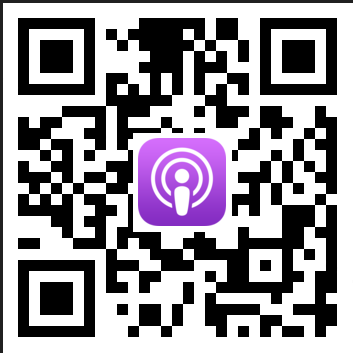Welcome to mind and body education and mastery!
Want to learn about why you may be at risk for diabetes, why you store extra weight, why you crave certain foods, or why you overeat or over drink? Learn about your mind and body in an entertaining, practical and easily-understandable format by browsing the collections below.
What are insulin resistance and diabetes, and how do you reverse them?
How and why do you store body fat, and how do you decrease how much fat you store?
What are urges, cravings and habits and how do you stop them?
What is emotional eating, and how do you stop doing it?
How does sugar and alcohol addiction happen, and how do you get over it?
Scroll through the posts to see what catches your eye!
Want individual guidance?
Sign up for a Free Consultation with me to learn more about the Game Changer Programs
RIGHT HERE!
Want EVEN MORE FREE STUFF???
Go RIGHT HERE!
Search for Diabetes Game Changer on either Apple Podcasts or Spotify! Or use the QR code to go right to it!
Magical Thinking
What is magical thinking and how is it impacting your health?
I used to engage in Magical Thinking in many ways that did not support healthy living.
Now I am amazed that I could believe any of it, really, although it is a perfectly natural phenomenon. But it turned out, that way of thinking was getting in the way of making real and substantial changes in my life.
No more.
Want to learn more?
It’s so easy to be conned
What are you really looking for in the daily coffee drink?
Food companies know how our primitive brain is wired, and they capitalize on that desire
If we get a reward in the form of feel-good brain chemicals when we do something, our primitive brain connects that “something” with survival. The brain literally thinks we need to seek it out again to help us survive. Food companies know this, even if we do not!
It is easy to say “I need some caffeine, I’m going to stop and get a coffee.”
And do you order an Americano black? Probably not. Because what you are seeking is NOT the coffee or the caffeine, (although you may be telling yourself it is, as I used to do), it is the “hit.” You are seeking a “hit” of dopamine that makes your brain feel good. But you are getting a front-end pleasure that comes with a back-end consequence, because all that sugar is contributing to your current ill health, your future disease, your fatigue, your inflammation, and your fuzzy thinking. Not to mention your weight, your insulin resistance and your blood sugar.
Yes, even that innocent “nonfat latte” that I used to order every single day was giving me a “hit.”
In my daily latte, I was getting about 20 grams of lactose (the type of sugar in milk). Lactose is about 1/2 as sweet as sugar. I was getting the equivalent of a little over 2 teaspoons of sugar in that latte. My insulin and blood sugar responded accordingly, as did my brain.
And you know what? When I switched to black coffee, suddenly I was not so interested in going to Starbucks anymore. The appeal was gone without the hit. Aaaa yes, I was NOT seeking the caffeine. I was seeking the “hit.”
Let’s talk about Snacking!
Have you taken it as “truth” that snacking is a necessary practice for good health? You may be shocked to discover the real truth about it.
“Snacks are necessary to keep my energy up. I need them to keep from getting too hungry. I’m ‘hangry,’ quick, get me a snack! I’m trying to lose weight - must keep my metabolism revved by eating 6 small meals a day.”
Have you ever heard these comments? Or maybe said them yourself? You know what? It’s all made up. None of it is true.
And in fact, you might be shocked at what is happening in your body when you snack between meals. And I am not just talking about your weight. Snacking influences insulin resistance. Inflammation. Leaky gut. Gut biome. Autophagy. Nervous system…
“I want to keep eating sugar. And I hate it!”
“I want to keep eating sugar. And I’m struggling every day.” Is that you?
A client was doing everything “right,” but still had intense frustration with her urge to eat sugar. She and I shared an exchange about it which she found was a “game changer” for her with her relationship with sugar. I want to share that powerful message with you.
Want to Confuse your Body?
What happens when you try intermittent fasting for the first time? The body is befuddled!
Why yes! Yes indeed you do!
If your body is used to a steady supply of glucose from what you’ve been feeding it for breakfast, lunch, dinner, and likely several snacks, you will have a bit of a transition to look forward to when you switch to Intermittent Fasting!
Want to learn more?
Urges, Cravings and Habits!
What are urges, cravings and habits? How are the created? Can we do something about them?
What is an urge?
It is simply a compelling desire to take one action over another – eat sugar in spite of a previous plan to avoid sugar that day for instance.
A craving is the same thing, but more specific.
Crave for a donut, for instance. Or even a specific type of donut.
A Habit is simply a neuropathway in the brain formed by repeatedly acting on those urges and cravings.
Behaviors and decisions are based on two primary parts of our brain: the prefrontal cortex and the primitive brain.
Once we understand how our brains create urges, cravings and habits, they can be changed to our advantage. Those that do not serve us can be eliminated and we can build healthy habits that serve our higher goals.
Interested in learning more?
Changing Our Relationship With Sugar!
Sugar! We love it. We hate it. We can’t live with it. We can’t live without it! Why is that?
Many of us have had trouble around sugar, myself included.
But you know what? This is completely normal! If you struggle with what feels like “sugar addiction,” it’s not. It’s just a normal brain doing its normal thing.
And you know what else? It is possible to change your attachment to it!
Desire is a LEARNED BEHAVIOR. And what does that mean? It can be UNLEARNED!
You were not born wanting to eat sugar. Yes, you were born with a brain that gets pleasure from eating sugar, but that is not the same as DESIRING sugar. You did not come out of the womb and immediately want a cookie.
But in order to change our relationship with sugar, we need to understand where it comes from and how it works.
“Intermittent Fasting is a FAD!”
If Intermittent Fasting is a fad, then we finally have a fad that makes biological sense!
Never thought you would try Intermittent Fasting?
I didn’t either, so I understand the reservations. I was in the exact same mindset a few years ago.
And 99 pounds ago.
Here are some of the things I either said to myself before trying IF, or heard others say:
If I don’t eat every few hours, I feel terrible – sweaty, lightheaded, shaky, headache, weak and grouchy. I could not possibly try intermittent fasting!
But you don’t understand! I am otherwise healthy without underlying health problems, but I was diagnosed with hypoglycemia by a doctor and I have to eat every 2 hours to keep my blood sugar up.
I take medication for my diabetes and the Diabetic Educator told me I had to eat 3 meals and two snacks daily in order to control my blood sugars.
I will be weak and tired if I skip a meal!
I thought breakfast was the most important meal of the day!
I’ve heard my metabolism will go down and I will lose muscle. I don’t want that.
People will judge me and say I shouldn’t do this and I will be embarrassed and won’t know what to say.
My doctor does not believe in intermittent fasting and tells me it is a “fad.”
These are all thoughts, and none of them are true.
Want the details? Read the entire article!
You may never look back.
What’s Wrong With Sugar?
What is “sugar” anyway? And how is it processed inside of our body? And why does that matter?
Lots.
We’ve been “had” by the food companies who don’t care that they are capitalizing on our ill health. Our government food guidelines are at the mercy of big business so we are misled.
Our brains and our bodies are naturally captivated.
We have lost control.
We think we are addicted.
But there is hope!
Once we understand what is happening inside our brains and bodies that influence our relationship with sugar, we can gain mastery and improve our health.
Want to learn more about sugar? I’ll teach you all about it.
You will never think about it in the same way as you do now.
What is Fat Even For?
What is stored fat and why should we LOVE it?
Ready for a brief physiology lesson about the awesome thing we call FAT?
I’m not kidding. Fat is fantastic!
Here is what your body is doing right now:
We eat food and it is ultimately broken down into components including glucose, which is the fuel for all of our body’s cells.
Glucose circulates in the blood stream.
Insulin opens the cell to accept this circulating glucose. Insulin is like the butler opening the door for the guest (glucose) and allowing it inside.
Insulin moves glucose into all cells that need fuel. Some cells, like muscle cells, store some extra glucose for quick energy whenever we need it.
When muscle cells are full of glucose, insulin facilitates filling our liver with glucose for the next level of energy storage. If muscle cells run out of glucose, glucose can be accessed quickly from the stores in the liver and sent to the muscles for energy. This is useful physiologically – we need to be able to run away from the tiger and not run out of fuel in the muscles too quickly!
When the liver is full, insulin helps the liver turn extra glucose into triglycerides and stores them away on our body in the form of body fat. If the stored glucose in the liver is used up, the stored body fat is mobilized for fuel.
What a fantastic system! As long as we have body fat, we won’t starve even when food is unavailable. We can access the fat on our body for fuel! And if we are trying to lose weight, this is actually our goal - promote a physiological environment in which we access our own body fat for fuel and use it up!
But what happens when there is just too much food coming in too often?
Insulin resistance, high blood sugar, diabetes…do you know what those words actually mean in your body?
What exactly is diabetes and how does it happen?
What exactly is “diabetes”?
And what is the difference between the types?
And how does your body develop diabetes?
And what can you do about it?
And, the MOST IMPORTANT question of all: HOW CAN YOU REVERSE IT????
If you want to know all the details in language you can understand, read the full article.
I’ll explain it all.
But that last question: how can you reverse it?
By eating in a way that makes your body’s physiology work properly! And no, I don’t mean “cut out the desserts.”













